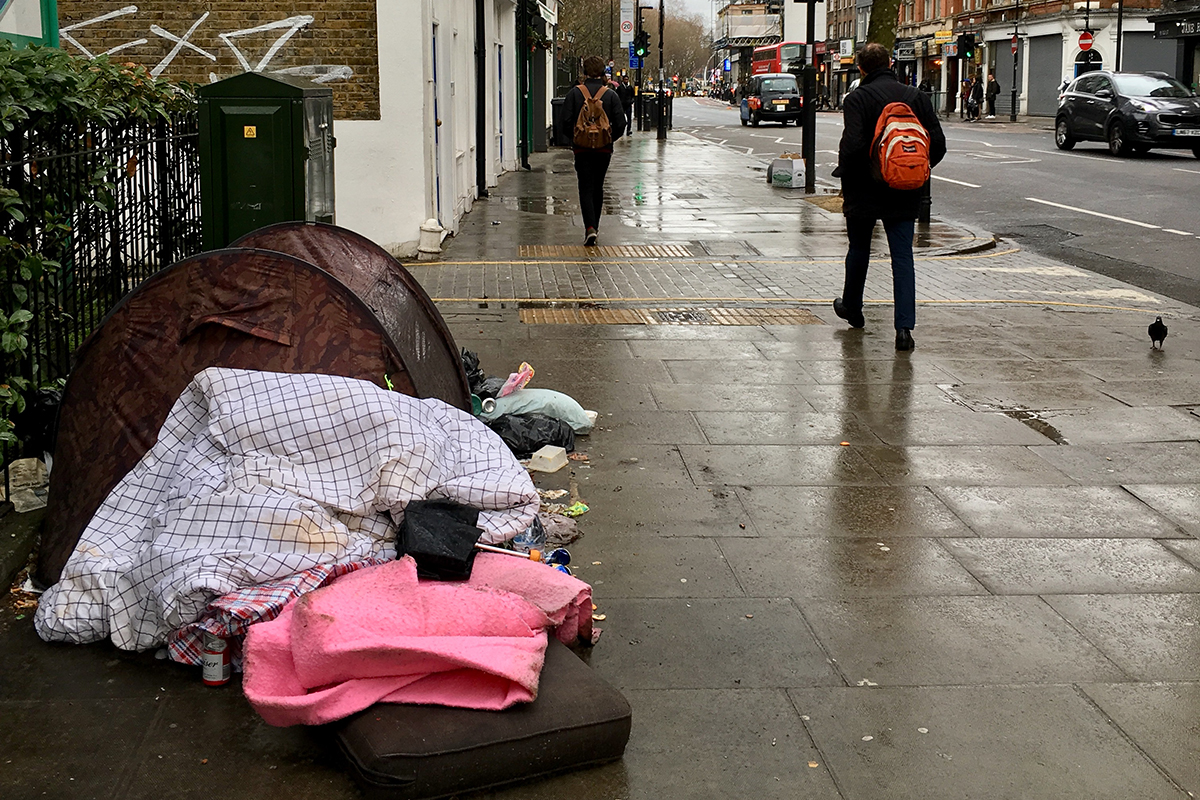You are viewing 1 of your 1 free articles

Francesca Albanese is head of research and evaluation at Crisis
We urgently need Housing First but only if it is delivered properly
Housing First works – but it could be undermined if its funding is eroded or it moves away from its basic principles, warns Francesca Albanese from Crisis
The end of homelessness is within our grasp – the extraordinary actions taken across the UK to get everyone into safe accommodation during the outbreak has shown that. The resulting increased interest in Housing First and rush to deliver fast solutions to thousands in hotels means now is the time to ensure it isn’t diluted or subverted from what we know works.
Housing First gives people safe and stable homes that provide the essential foundation for everything else. It ends homelessness for people who have experienced multiple challenges, which are often rooted in past trauma, poverty or experiences such as being in local authority care or prison. It offers secure housing and unconditional, personalised support, to address needs associated with mental ill health or substance dependency.
The need for this model is clear: research commissioned by Crisis and Homeless Link indicated that 18,400 people across the UK (16,500 in England) would benefit from a Housing First approach to end their homelessness.
The concept of Housing First emerged in the US in the 1990s and was a direct response to rough sleepers who frequently stayed in psychiatric hospitals. It has been designed for a specific group of people facing homelessness – around 10% of people experience all forms of homelessness at any one time.
Since then, other countries have made a huge amount of progress in implementing Housing First and it is the cornerstone of several successful national homelessness strategies – Finland has used it to reduce homelessness dramatically and it is a key part of Scotland’s Ending Homelessness Together action plan, for example.
“In our urgency to move people from hotels to their own homes, we mustn’t take financial shortcuts that could lead to them becoming homeless again”
There are differences between countries, because of their different healthcare and welfare systems, but there is well-established evidence that Housing First is most effective when there is high fidelity to its principles.
That means it needs the funding necessary to achieve this. Housing First is relatively expensive compared to some services. It requires skilled staff who can deliver intensive, flexible and strengths-based support to small caseloads of five to seven people. It also works best as part of a wider system focused on preventing homelessness happening in the first place and that invests in social housing.
A pan-European study also found that low levels of fidelity increased the risk of people associating the term ‘Housing First’ with services that are not Housing First, potentially discrediting it. This is a risk we are starting to see in England as phrases such as ‘Housing First-style’ and ‘Housing First-like’ have begun to appear.
In our urgency to move people from hotels to their own homes, we mustn’t take financial shortcuts that could lead to them becoming homeless again and cast doubts on a solution that has proven to work.
“We can’t risk cutting corners on costs and jeopardising the strong outcomes associated with Housing First”
This means there are some non-negotiables about what Housing First is and isn’t:
- It must provide a permanent offer of support that is not time-limited
- There must be an unconditional offer of housing that is not tied to the offer of support
- It must provide a stable, secure and affordable home, and help to move if the tenancy doesn’t work out
- It must be targeted at people experiencing multiple challenges and support needs
- Caseloads must be small, with no more than seven people per support worker
- There must be investment in training, development and support for specialist staff to deliver it
- Staff must be paid appropriately to work flexibly, creatively and in a trauma-informed way
Providing Housing First locally may require additional provision of related services. A feasibility study that looked at scaling up Housing First in Liverpool City Region found a gap in access to mental health provision, which was then factored into the commissioning model; in other areas, additional drug and alcohol treatment may be needed.
We can’t risk cutting corners on costs and jeopardising the strong outcomes associated with Housing First. Great strides have been made in Scotland and Wales in scaling up Housing First. The £28m provided to deliver Housing First pilots across three city regions in England is a good building block to increase provision for all those who need it. But the benefit cap and short-term investment in Local Housing Allowance must not undermine this ambition.
Crisis’ campaign, Home for All, is calling on the government to commit to a plan that will enable everyone across the UK to have the security of a safe and settled home. An essential part of this is a commitment to fund the support services needed to provide 16,500 high-fidelity Housing First tenancies in England.
Francesca Albanese, head of research and evaluation, Crisis, editorial panel member, Thinkhouse











